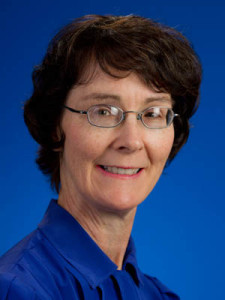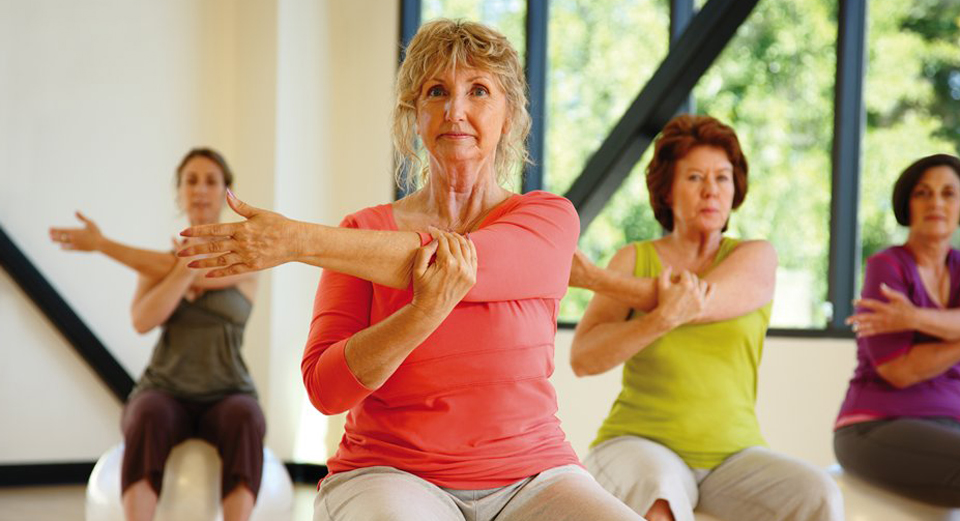A conversation with Kaiser Permanente Santa Clara physician Margaret Mahony, MD, about menopause symptoms, treatments, and the upside of mid-life.
If you’re a woman in your 40s or 50s dealing with the effects of menopause, you have plenty of company. Each year more than 2 million women in the United States reach menopause, and millions more experience symptoms of perimenopause (the time around a woman’s last menstrual period).
Margaret Mahony, MD, is a gynecologist at the Kaiser Permanente Santa Clara Medical Center who specializes in menopause. She’ll be part of a KP presentation on menopause at the City of Santa Clara Central Park Library on Monday, Aug. 17, at 6:30 p.m.
Dr. Mahony said everyone’s experience of menopause is different. “The challenge and the reward is figuring out what will work best for each individual woman.”

What are some common symptoms?
Most women start experiencing symptoms in their mid to late 40s, but some women start earlier, and symptoms can go on for several years.
The most common symptoms are irregular periods, insomnia, waking up at night feeling hot, and experiencing hot flashes during the day.
Other symptoms can include vaginal dryness, related to the drop in estrogen that women experience during this time. The dryness can lead to painful sex and contribute to decreased sexual desire. You can read more about symptoms at kp.org’s section on Midlife and Menopause.
How can women best manage symptoms?
For women who experience hot flashes, night sweats, trouble sleeping, or the anxiety and fatigue that sometimes accompany perimenopause, the first step is to make sure they’re taking care of themselves. That means exercising regularly, eating a healthy diet, quitting smoking if they smoke, and adopting a stress-reduction technique such as yoga, tai chi, or meditation.
These healthy activities also help reduce a woman’s risk of heart disease, which is the biggest health threat to women after menopause.
For vaginal dryness, there are over-the-counter vaginal moisturizers or lubricants. If they’re not effective, other options include prescription estrogen cream and an estrogen-filled vaginal ring or tablet.
What about alternative therapies and hormone therapy?
Women need to be cautious about herbs and supplements because they’re not regulated by the FDA. Also, some herbs don’t work well with other herbs or with prescription medications, so women should talk to their physician or pharmacist to avoid known interactions.
Eating foods such as tofu or soy beans or drinking soy milk may help reduce hot flashes, although studies on this show mixed results. Research does support having a daily serving of soy (25 grams of soy protein) as part of a low-fat, well-balanced diet.
For women whose symptoms are interfering with quality of life, the most effective treatment remains hormone therapy, although it does have potential risks. Depending on a woman’s age, there are increased risks of blood clots, heart attack, stroke, and breast cancer.
Physicians also may prescribe antidepressant medications, which have been shown to decrease hot flashes and night sweats. It’s best to go over these options with your doctor.
Parting thoughts?
Menopause is a time to acknowledge and embrace that we’re getting older and make sure we’re taking care of our health and doing things that are important to us. We need to move things from the ‘I’m going to do’ list to the ‘I’m doing it’ list as we look forward to a healthy and thriving new chapter in our lives.





This Post Has 4 Comments
This information is outdated! New research says that HRT is heart protective, and also helps blood pressure by relaxing the blood vessels. Please educate your doctors Kaiser Permanente. Women’s quality of life is a stake here.
Thank you for your feedback. We consulted Dr. Mahony about your comment. She said the relationship between HT and cardiovascular disease is an ongoing area of active research. This is being closely followed. The medical group will adjust our guidance when appropriate to do so.
Great article — I love the last part: Menopause is a time to acknowledge and embrace that we’re getting older and make sure we’re taking care of our health and doing things that are important to us. We need to move things from the ‘I’m going to do’ list to the ‘I’m doing it’ list as we look forward to a healthy and thriving new chapter in our lives.
Thanks,
Betty
I love this: “We need to move things from the ‘I’m going to do’ list to the ‘I’m doing it’ list as we look forward to a healthy and thriving new chapter in our lives.” I’m going to use this! Thank you, Dr. Mahony!